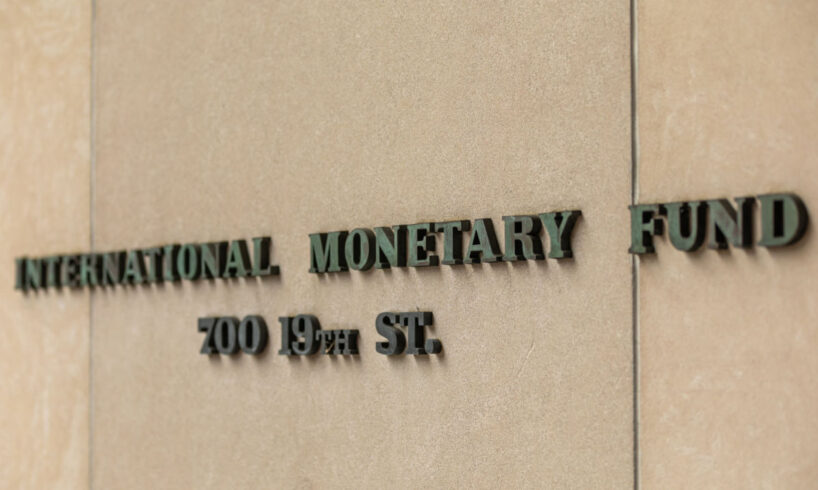
An International Monetary Fund (IMF) division chief and deputy managing director are calling for more action to be taken in the regulatory aspect to avoid crypto’s ups and downs affecting banks and traditional financial institutions. Nobuyasu Sugimoto, deputy division chief of the financial supervision and regulation division of the IMF, and Bo Li, deputy managing director at the IMF, believe that, given the growing links between legacy finance and crypto, cryptocurrency’s volatility might bring systemic risks to the existing markets.
IMF Blog Post Calls for Containing Future Crypto Contagion
The volatility and instability of cryptocurrency markets are starting to worry regulators from all over the world. On Jan. 18, Nobuyasu Sugimoto, deputy division chief of the financial supervision and regulation division of the IMF, and Bo Li, deputy managing director at the IMF, issued an article warning about the effect that the volatility of crypto markets might have on the existing financial system.
The article remarks that the instability developed in crypto markets as a result of the different collapses of tokens and exchanges might affect traditional markets and institutions, given the current deepening of the links between these two systems.
Regulating these markets is one of the elements to prevent this from happening, according to the authors, who also indicate that investors in developed markets have been flocking to some of these assets due to the returns they offer. The IMF Blog post states:
Advanced economies are also susceptible to financial stability risks from crypto, given that institutional investors have increased stablecoin holdings, attracted by higher rates of return in the previously low-interest rate environment.
Risks of Substitution and Cryptoization
While the IMF still does not consider crypto and stablecoins as serious risks to the global financial system, some countries are substituting their currency with crypto and stablecoins, making international control of these funds especially difficult. For Sugimoto and Li, this situation has “the potential to cause capital outflows, a loss of monetary sovereignty, and threats to financial stability, creating new challenges for policymakers.”
This can be seen in economies that are being rammed with high levels of inflation and devaluation at the same time, with citizens losing trust in their fiat currencies and flocking to other alternatives, such as dollar-pegged stablecoins.
To control these risks, the blog post authors recommend setting up global regulations for virtual asset service providers, forcing customer assets to be segregated from the holdings of these companies. Also, stablecoin issuers should be heavily regulated, and are even advised to exert bank-like regulations, depending on the size of the project. Experts have stated before that a run on stablecoins might affect the U.S. Treasuries market.
Also, the global implementation of the Basel Committee directives, a standard on how much cryptocurrency exposure banks can have at any point in time, must be accelerated.
What do you think about the considerations of the IMF Blog post authors regarding cryptocurrency contagion risks? Tell us in the comments section below.
Sergio Goschenko
Image Credits: Shutterstock, Pixabay, Wiki Commons, christianthiel.net / Shutterstock.com
Disclaimer: This article is for informational purposes only. It is not a direct offer or solicitation of an offer to buy or sell, or a recommendation or endorsement of any products, services, or companies. Bitcoin.com does not provide investment, tax, legal, or accounting advice. Neither the company nor the author is responsible, directly or indirectly, for any damage or loss caused or alleged to be caused by or in connection with the use of or reliance on any content, goods or services mentioned in this article.
More Popular NewsIn Case You Missed It















